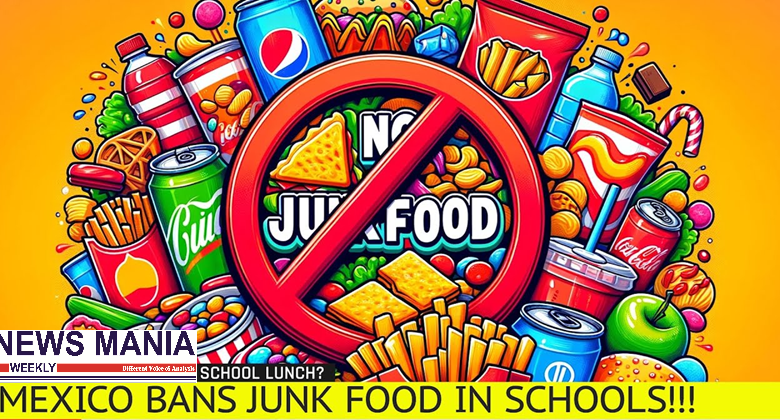Mexico strengthens bans on junk food in schools

News Mania / Piyal Chatterjee / 22nd October 2024
As authorities deal with what they describe as the worst childhood obesity crisis in the world, Mexican officials warned Monday that schools have six months to enforce a government-sponsored ban on junk food or face steep fines. The products that have become staples for two or three generations of Mexican schoolchildren are targeted by the new regulations: chips, sugary fruit beverages, artificial pork rinds, and salty peanuts with chili that are encased in soy. Fines for violating the injunction range from $545 to $5,450 for school officials, and they could quadruple for a second infraction. For some, that might be almost a year’s salary.
The UN children’s agency has declared child obesity in Mexico an emergency, citing the country’s children’s greatest consumption of junk food in Latin America, with many consuming 40% of their total caloric intake from it.
According to authorities, around one-third of youngsters in Mexico suffer from obesity or overweight.Between 2023 and 2024, a survey of over 10,000 schools revealed that 98% of them served junk food, 95% served sugary drinks, and 79% served soft drinks. Twenty-five percent of schools had junk food advertisements.On Monday, Claudia Sheinbaum, the newly appointed president, said that schools must provide water fountains and other foods like bean tacos.
However, pupils in the great majority of Mexico’s 255,000 schools do not have access to free drinking water. About 10,900 of the nation’s schools, or just 4%, were successful in installing drinking fountains, according to a 2020 report. Many schools struggle to maintain adequate restrooms, internet access, or energy because they are located in impoverished or isolated places. Since Coca-Cola bottles first came here fifty years ago, the beverage has become so ingrained in the local way of life that it is now used in religious rituals.Between 2010 and 2020, Mexico implemented front-of-package warning labels on food products to alert customers about increased salt, added sugar, excess calories, and saturated fats. Certain snack snacks contain all four
However, the new regulations require schools to gradually remove from their snack stands any product that has even a single warning label. Although 77% of schools in the latest study had such stands outside, it was not immediately clear how the government would implement the prohibition on the sidewalks outside schools, where vendors typically put up tables with goods to sell to children during recess.






